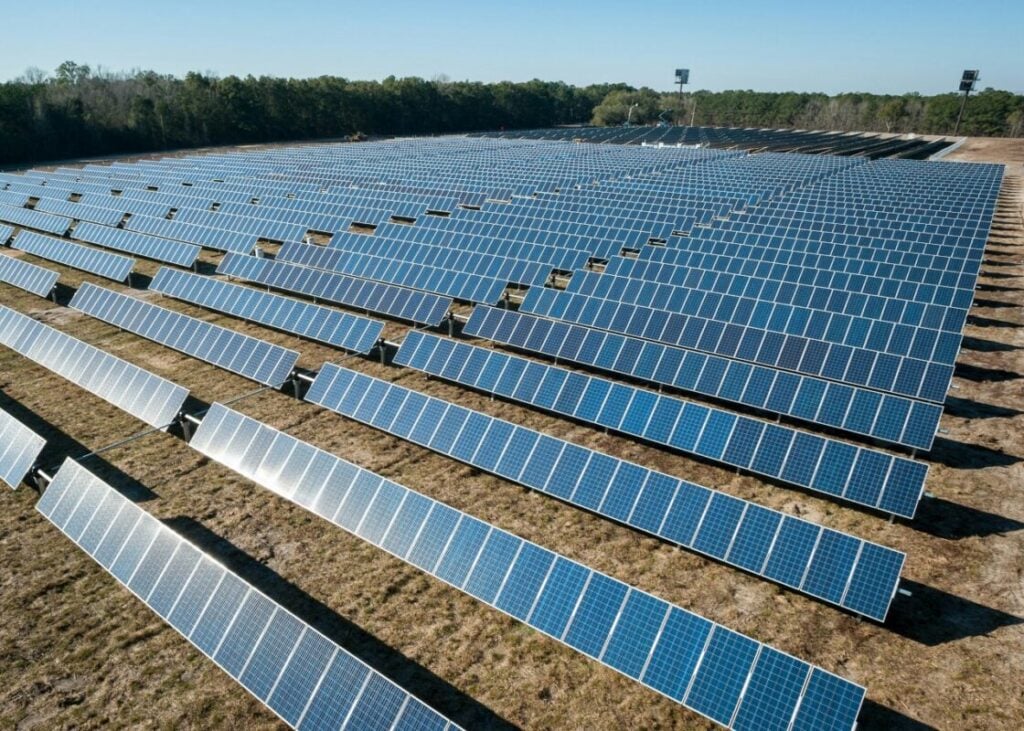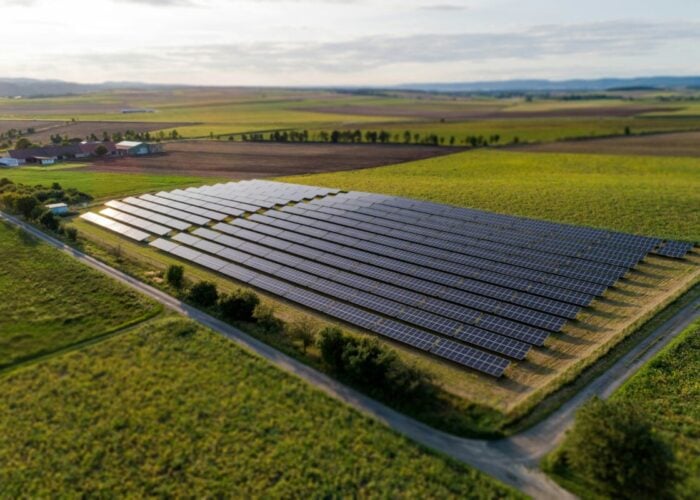
Germany has awarded contracts to 490MW of solar-plus-storage projects in its latest “innovation” auction for co-located renewables.
The Bundesnetzagentur (German Federal Network Agency) said the auction was more than four times oversubscribed, having received 163 bids for over 2,182MW of proposed capacity. The original auction offered contracts for 486MW of new capacity.
Try Premium for just $1
- Full premium access for the first month at only $1
- Converts to an annual rate after 30 days unless cancelled
- Cancel anytime during the trial period
Premium Benefits
- Expert industry analysis and interviews
- Digital access to PV Tech Power journal
- Exclusive event discounts
Or get the full Premium subscription right away
Or continue reading this article for free
The successful projects were awarded at prices ranging from 4.79 cents/kWh to 5.59 cents/kWh, with a volume-weighted average of 5.31 cents/kWh. Bavaria was awarded the most capacity of any state (11 projects with 122MW of combined capacity), followed by Schleswig-Holstein and Brandenburg with around 50MW each.
The average price was “considerably lower” than the previous innovation auction, which closed at 6.15 cents/kWh and was also around four times oversubscribed, the Bundesnetzagentur said.
The last three innovation auctions have seen substantial price drops; the October 2024 round settled at an average of 7.45 cents/kWh, which then fell to 6.15 cents in July and 5.31 cents in this most recent iteration.
The last auction, in July, also set a record as the first time bids exceeded 2GW in cumulative capacity, Bundesnetzagentur president Klaus Müller said at the time. That record was exceeded this time around.
The falling prices, fierce competition and high demand speak to the economics of renewable energy in Germany. While the auction was issued for any co-located renewable energy or energy storage projects, all of the successful bids were for solar-plus-storage.
Solar-plus-storage projects have become increasingly cost-competitive in “major markets around the world”, said Brent Wanner, head of the World Energy Outlooks’ power sector unit at the International Energy Agency (IEA), at Solar Media’s Energy Storage Summit earlier this year.
However, Wanner said that markets need to adapt and be designed to accommodate more co-located assets.
The cost of solar equipment has been low for the last 18 months, and battery costs are following suit. The IEA’s Renewables 2025 report, published this week, said PV would account for around 80% of the huge global expansion in renewables forecast in the next five years, largely due to its low cost and ease of deployment.
This week, the German solar trade association Bundesverband Solarwirtschaft (BSW-Solar) called on the government to impose a legal target to reach 100GWh of energy storage capacity in Germany by 2030.






